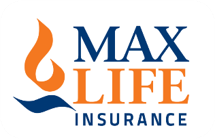Hospitalized by Confusion? Demystifying Mediclaim and Health Insurance for Optimal Coverage

In the complex world of healthcare, treading on the paths of insurance can be a daunting task. Often, the terms “Mediclaim” and “Health Insurance” are used interchangeably, leading to confusion and potentially inadequate coverage. While both offer protection against medical expenses, their nuances and limitations differ significantly. To ensure informed decision-making and optimal healthcare security, understanding the key distinctions between these two crucial insurance options is imperative.
Defining the Terms:
Mediclaim:
A Mediclaim policy primarily focuses on hospitalization expenses incurred due to illness or accident. It covers the costs associated with in-patient treatment, including room rent, doctor’s fees, surgery charges, and medication used during hospitalization. However, it typically excludes pre- and post-hospitalization expenses, outpatient treatments, and routine check-ups.
Health Insurance:
Health insurance, on the other hand, offers a broader spectrum of coverage, encompassing both hospitalization and outpatient expenses. It can cover a wider range of medical services, including:
Pre-hospitalization expenses: This includes diagnostic tests, consultations, and medications undertaken before hospitalization.
Hospitalization expenses: Similar to Mediclaim, it covers in-patient treatment costs.
Post-hospitalization expenses: This covers expenses incurred after discharge, such as follow-up consultations, physiotherapy, and medication.
Outpatient treatments: Consultations with specialists, diagnostic tests, and day-care procedures are often covered under health insurance plans.
Maternity benefits: Some health insurance plans offer coverage for maternity expenses, including prenatal and postnatal care, delivery costs, and newborn care.
Critical illness cover: Certain health insurance plans provide additional coverage for specific critical illnesses, offering financial support during challenging times.
Key Differences in Scope and Benefits:
- Coverage Range:
Mediclaim: Limited to hospitalization expenses.
Health insurance: Covers a wider range of medical expenses, including pre- and post-hospitalization, outpatient treatments, and additional benefits like maternity or critical illness cover.
- Cost and Premiums:
Mediclaim: Typically cheaper premiums due to its limited coverage.
Health insurance: Premiums are generally higher than Mediclaim due to the broader scope of benefits offered.
- Claim Settlement Process:
Mediclaim: Claim settlement is often based on cashless hospitalization through a network of hospitals.
Health insurance: Claim settlement can be cashless or reimbursement-based, depending on the plan and network availability.
- Flexibility and Customization:
Mediclaim: Offers limited flexibility in terms of plan options and add-on benefits.
Health insurance: Provides greater flexibility, allowing customization of coverage based on individual needs and budget through various plan options and add-on riders.
Choosing the Right Option:
The choice between Mediclaim and health insurance depends on your individual needs, budget, and risk profile. Here are some factors to consider:
Age and health status: Younger and healthy individuals may opt for a basic Mediclaim plan, while older individuals or those with pre-existing conditions may require the comprehensive coverage of health insurance.
Frequency of medical expenses: If you anticipate frequent medical needs, a health insurance plan with wider coverage might be more beneficial.
Budgetary constraints: Consider your financial limitations and compare premiums of different plans before making a decision.
Beyond the Binary:
It’s important to note that both Mediclaim and health insurance can be valuable tools in managing healthcare costs. In some cases, opting for a combination of both may be the most prudent approach. For instance, a basic Mediclaim plan can act as a foundation, while a separate health insurance plan with critical illness cover can provide additional financial security in case of unforeseen circumstances.
Navigating the complex landscape of healthcare insurance requires careful consideration and informed decision-making. Understanding the distinct features and limitations of Mediclaim and health insurance empowers you to choose the option that best suits your individual needs and budget. Remember, adequate healthcare coverage is an investment in your well-being, ensuring financial security and peace of mind in the face of unforeseen medical challenges.
FAQ
Choosing the right healthcare coverage can feel like traversing a medical maze. Let’s untangle the confusion with your unique FAQ on Mediclaim and Health Insurance:
Is Mediclaim enough for me?
It depends! Young and healthy individuals with infrequent medical needs might find Mediclaim adequate for hospitalization coverage. If you have regular check-ups, pre-existing conditions, or anticipate potential hospitalization, a broader health insurance plan is likely more suitable.
What if I already have Mediclaim? Do I need Health Insurance?
Consider it layered protection. Mediclaim is your base foundation, covering hospitalization. Health insurance builds upon it, offering pre- and post-hospitalization care, outpatient consultations, and additional benefits like maternity or critical illness cover. Choose a health insurance plan that complements your existing Mediclaim, filling the coverage gaps.
Can I simply go cashless with both Mediclaim and Health Insurance?
Not always. Cashless hospitalization depends on network availability. Your Mediclaim network might differ from your chosen health insurance plan’s network. Research network compatibility before choosing a plan to ensure seamless cashless treatment.
Does a higher premium guarantee better coverage?
Premiums reflect the breadth and depth of coverage. A higher premium often indicates a wider range of medical services covered, higher claim amounts, and additional benefits. Analyze your needs and compare plans before blindly chasing the priciest option.
I’m worried about hidden costs, like co-pays or deductibles.
Transparency is key! Carefully read the policy documents before signing up. Understand any co-pay requirements (fixed amounts you pay at the time of service) and deductibles (amounts you bear before the insurance kicks in) to avoid surprises later.
I’m tech-savvy. Are there digital tools to manage my healthcare coverage?
Many insurers offer mobile apps and online portals for easy access to policy details, claim submission, and even cashless settlement options. Choose a plan that caters to your digital preferences for convenient management.
I’m confused! Should I just talk to someone?
Absolutely! Consulting a financial advisor or insurance expert can be invaluable. They can assess your needs, recommend suitable options, and guide you through the intricacies of policy terms and conditions.
Remember, your healthcare coverage is a personal choice. This FAQ is just a starting point. Keep exploring, compare plans, and seek expert advice to navigate the unique healthcare maze and build your personalized path to optimal coverage.








